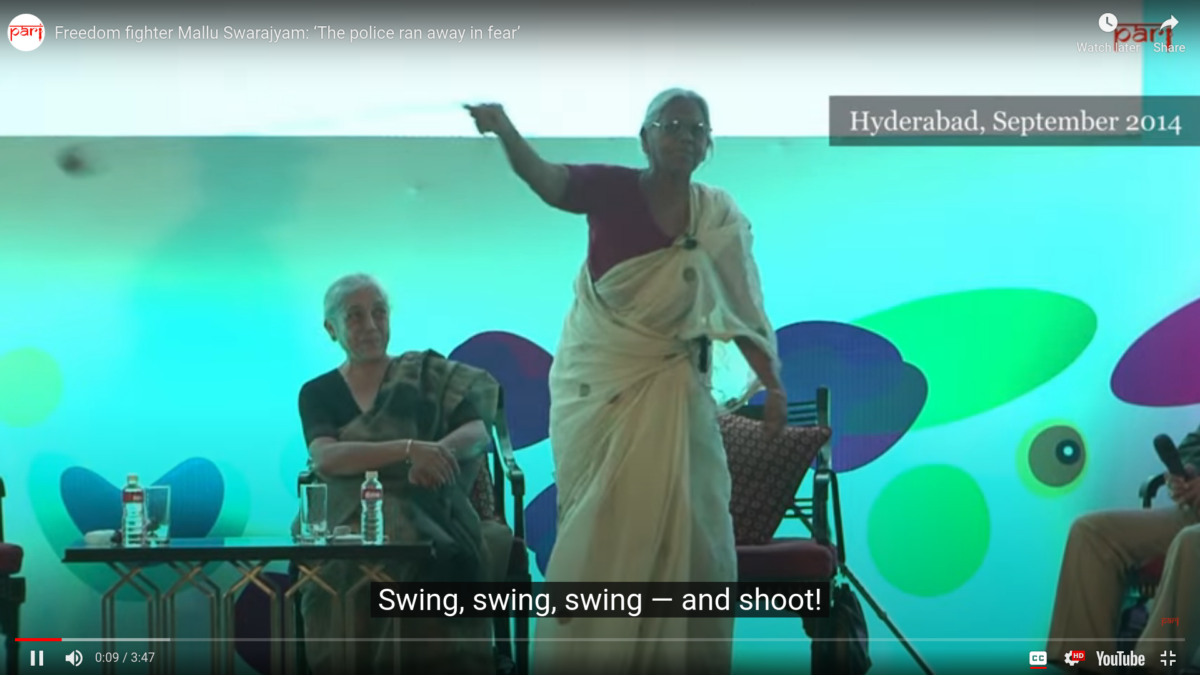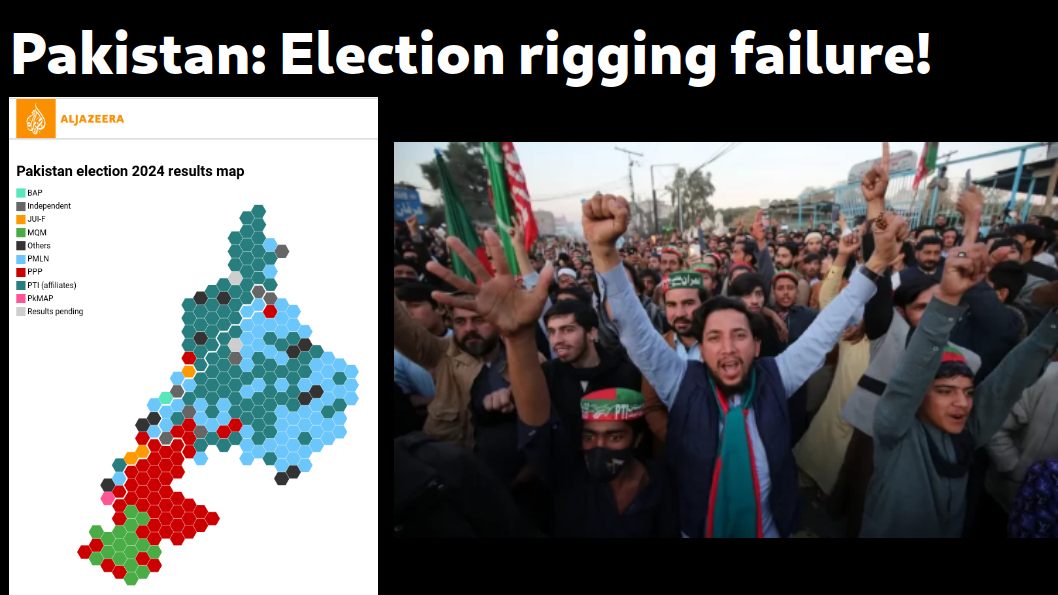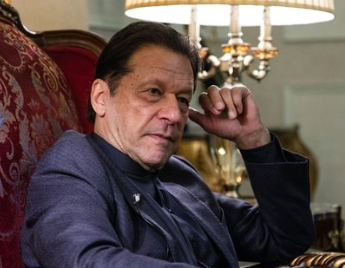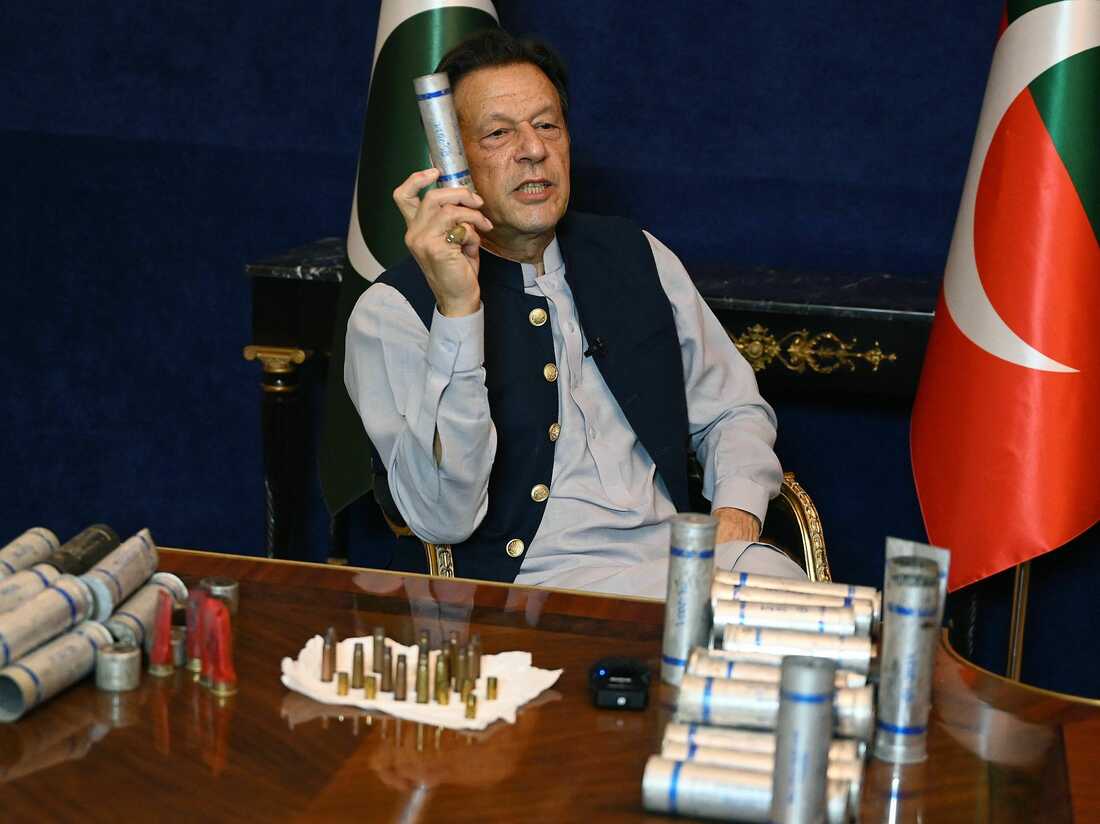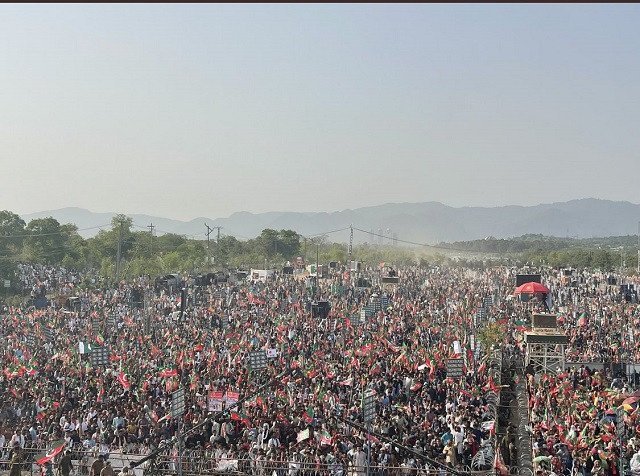Some struggles can be kept nonviolent, but decolonization never has been—certainly not in India
[This article is the second in what I believe will be a series of 3 articles. The first one talked about the armed elements in the supposedly “nonviolent” struggle for civil rights in the US South, and showed that that struggle was not, in fact, a “nonviolent” struggle. The current article does the same, but for the supposedly “nonviolent” struggle for Indian Independence. The third will talk about Palestine.]
If there is a single false claim to “nonviolent” struggle that has most powerfully captured the imagination of the world, it is the claim that India, under Gandhi’s leadership, defeated the mighty British Empire and won her independence through the nonviolent method.
India’s independence struggle was a process replete with violence. The nonviolent myth was imposed afterward. It is time to get back to reality. Using recent works on the role of violence in the Indian freedom struggle, it’s possible to compile a chronology of the independence movement in which armed struggle played a decisive role. Some of these sources: Palagummi Sainath’s The Last Heroes, Kama Maclean’s A Revolutionary History of Interwar India, Durba Ghosh’s Gentlemanly Terrorists, Pramod Kapoor’s 1946 Royal Indian Navy Mutiny: Last War of Independence, Vijay Prashad’s edited book, The 1921 Uprising in Malabar, and Anita Anand’s The Patient Assassin.
Nonviolence could never defeat a colonial power that had conquered the subcontinent through nearly unimaginable levels of violence. India was conquered step by step by the British East India Company in a series of wars. While the British East India Company had incorporated in 1599, the tide turned against India’s independence in 1757 at the battle of Plassey. A century of encroaching Company rule followed—covered in William Dalrymple’s book The Anarchy—with Company policy and enforced famines murdering tens of millions of people.
In 1857, Indian soldiers working for the Company rose up with some of the few remaining independent Indian rulers who had not yet been dispossessed—to try to oust the British. In response, the British murdered an estimated (by Amaresh Mishra, in the book War of Civilisations) 10 million people.
The British government took over from the Company and proceeded to rule India directly for another 90 years.
From 1757 to 1947, in addition to the ten million killed in the 1857 war alone, another 30-plus million were killed in enforced famines, per figures presented by Indian politician Shashi Tharoor in the 2016 book Inglorious Empire: What the British Did to India.
A 2022 study estimated another 100 million excess deaths in India due to British imperialism from 1880 to 1920 alone. Doctors like Mubin Syed believethat these famines were so great and over such a long period of time that they exerted selective pressure on the genes of South Asian populations, increasing their risk of diabetes, heart disease, and other diseases that arise when abundant calories are available because South Asian bodies have become famine-adapted.
By the end, the independence struggle against the British included all of the methods characteristic of armed struggle: clandestine organization, punishment of collaborators, assassinations, sabotage, attacks on police stations, military mutinies, and even the development of autonomous zones and a parallel government apparatus.
A Chronology of India’s Violent Independence Struggle
In his 2006 article, “India, Armed Struggle in the Independence Movement,” scholar Kunal Chattopadhyay broke the struggle down into a series of phases:
1905-1911: Revolutionary Terrorism. A period of “revolutionary terrorism” started with the assassination of a British official of the Bombay presidency in 1897 by Damodar and Balkrishna Chapekar, who were both hanged. From 1905 to 1907, independence fighters (deemed “terrorists” by the British) attacked railway ticket offices, post offices, and banks, and threw bombs, all to fight the partition of Bengal in 1905. In 1908, Khudiram Bose was executed by the imperialists for “terrorism.”
These “terrorists” of Bengal were a source of great worry to the British. In 1911, the British repealed the partition of Bengal, removing the main grievance of the terrorists. They also passed the Criminal Tribes Act, combining their anxieties over their continued rule with their ever-present racial anxieties. The Home Secretary of the Government of India is quoted in Durba Ghosh’s book Gentlemanly Terrorists:
“There is a serious risk, unless the movement in Bengal is checked, that political dacoits and professional dacoits in other provinces may join hands and that the bad example set by these men in an unwarlike province like Bengal may, if it continues, lead to imitation in provinces inhabited by fighting races where the results would be even more disastrous.”
Ghosh outlines some more of these cases:
“In Bengal, the Alipore Conspiracy Case, Midnapore Conspiracy Case, the Howrah Gang Case, and other conspiracy trials enabled the government to detain those involved with secret and underground political groups. Relying on a century-old piece of security legislation that included the Regulation III of 1818, the government also passed the Indian Criminal Law Amendment Act of 1908 and the Defence of India Act in 1915 to bring political violence against the state under control.”
But, as Ghosh argues, the imperialist response wasn’t solely to pass draconian laws. On the contrary, they made concessions—growing concessions—toward independence and other demands by the “terrorists,” and tried to disproportionately reward their “nonviolent” interlocutors from the Congress. Bengal was reunited; the British moved their capital from Calcutta to Delhi to get away from the terrorist movement in that province.
Revolutionary Struggles 1914-1918: With the end of the Swadeshi movement of 1905 to 1907 began what was called, simply, the “Terrorist Movement” from 1907 to 1917. The terrorists opened with an attack on Bengal Lieutenant Governor Andrew Fraser in Midnapore in 1907. During WWI, the Ghadar movement tried to overthrow British rule multiple times—a (foiled) rebellion in February 1915 led by Rash Behari Bose and another (foiled) raid in Calcutta planned for Christmas Day 1915. Revolutionaries in Bengal raided arms depots, obtained military assistance from Germany, fought a pitched battle against the British in September of 1915 at Chasakhand, and even operated internationally in places like the U.S. and Japan. Revolutionary leaders Chittapriya Ray Chaudhuri and Jatindranath Mukherjee both died in this battle.
The response by the British to the terrorist movements in their colonial possessions was to pass wartime laws: the Defence of the Realm Act in Ireland, and the Defence of India Act. But also to make concessions.
Turning point in 1919: The Amritsar massacre of 1919 was a massacre of hundreds of protesters dissenting from Britain’s desire to extend wartime measures indefinitely through the 1919 Rowlatt Act. After the slaughter, the British engaged in an orgy of racial violence and ritual humiliation, making Indians crawl on their knees down streets, for example. After 1919, Gandhi also led a nonviolent campaign, the non-cooperation movement. What is less known, documented by Durba Ghosh, is that the terrorist movement was in constant contact with Gandhi and the Nehrus (both Motilal and Jawaharlal) throughout this period. The British passed the repressive 1919 Rowlatt Act, but also passed the first Government of India Act and the Montagu Chelmsford Reforms, promising self-government in some distant future.
Also, recall that in 1919 the British also fought an unsuccessful war with Afghanistan and unsuccessfully invaded the new Soviet Union. These violent, military conflicts set the context for the changes the imperialists were forced to make in India.
Interwar Revolutionary Struggle
In the history of the 1920s, the most visible face of the Indian struggle was Gandhi’s non-cooperation movement. But there was an uprising in South India as well, in Malabar in 1921, which the British tried to steer in a communal direction and ended up crushing by force.
The 1920s and 1930s were a time of constant acts of armed struggle. In the 1920s, the Hindustan Republican Association engaged in “patriotic robberies” like one in Kakori, after which four of the leaders were hanged and three others sentenced to life in prison. In 1929, Bhagat Singh and Batukeswar Dutt threw a bomb in the Central Legislative Assembly.
In 1925 and 1930, the British passed two Bengal Criminal Law Amendment Acts. The 1930 amendment was put in force on March 25. On April 18, the Indian Republican Army with Surya Sen and 60 terrorists led a raid on the Chittagong Armory:
“The raid was an elaborately planned attack in which revolutionaries managed to occupy major colonial sites, including the European club, police armoury, and the telephone and telegraph office. The raiders cut off all communications with officials in other parts of India, gathered arms, and hoped to terrorize the British while they enjoyed a Friday evening at their club.”
Also in 1930, Odisha saw a tribal uprising against the British in which villagers battled police—Sainath talked to some of the veterans of this uprising in Last Heroes, chapter 2.
In 1931, the British hanged Bhagat Singh, Shivaram Rajguru, and Sukhdev Thapar. They murdered Chandra Sekhar Azad in a park in Allahabad. They passed the Bengal Suppression of Terrorist Outrages Act in 1932, but terrorism continued.
In 1935, the British made a major concession, another Government of India Act, which expanded the franchise and promised the Congress leaders that they would eventually become the rulers (on the British imperialist timeline). The quid pro quo was that these Indian leaders would suppress the terrorists. Among the British weapons was nonviolence, including the Civil Disobedience movement. The Congress leaders knew, however, that without some terrorism, their leverage with the British would be zero. So they played their own game, quietly supporting the terrorists at times, publicly denouncing them at others, while conducting civil disobedience within a framework of rules that involved jail time for nonviolent actors and British assassination and hanging for terrorists who wouldn’t play the civil disobedience game. Violent struggle was the price paid by the “terrorists” so that the nonviolent could sit at the table to negotiate with the imperialists.
In Chapter 4 of Lost Heroes, Sainath spoke to bomb-maker Shobharam Gaharwar, active in Rajasthan and elsewhere in the 1930s and 1940s, who confirmed the ubiquity of bomb-making activity during the independence struggle:
“We were in great demand at that time! I have been to Karnataka. To Mysore, Bengaluru, all sorts of places. See, Ajmer was a prominent centre for the Quit India movement, for the struggle. So was Benares [Varanasi]. There were other places like Baroda in Gujarat and Damoh in Madhya Pradesh. People looked up to Ajmer, saying the movement is strong in this town and that they would follow the footsteps of the freedom fighters here. Of course, there were many others, too.”
Quit India 1942 and Disillusionment: For Lost Heroes, Sainath spoke to veterans of the armed struggle in Punjab as well as in the south in the Telangana People’s Struggle, led by Sundarayya. Known as the Telangana Uprising of 1946, it was a multiyear struggle over an immense area, and in addition to battles with feudal landlords, police, and hired goondas, he reports:
“At its height, the Veera Telangana Porattam spread across almost 5,000 villages. It touched over three million lives across some 25,000 square kilometres. In the villages under their control, this people’s movement set up a parallel government. That included the creation of gram swaraj committees or village communes. Close to one million acres of land were redistributed amongst the poor. Most official histories date the Communist-led uprising as occurring from 1946-51. But great agitations and revolts were already underway there from late 1943.”
Another southern state, Tamil Nadu, was the site of an immense anti-feudal struggle at the same time as the Quit India movement of 1942. Sainath spoke to veteran R. Nallakannu:
“We’d fight them at night, throw stones—those were the weapons we had—and chase them away. Sometimes, there would be pitched battles. This happened several times during the protests that came in the 1940s. We were still boys, but we fought. Day and night, with our kind of weapons!”
In one village in Odisha in August 1942, activists took over and declared themselves magistrates, beginning to administer justice. They were quickly arrested, but once locked up they immediately began organizing the prisoners, as they told Sainath:
“They sent us to a prison for criminals. We made the most of it… In those days, the British were trying to recruit soldiers to die in their war against Germany. So they held out promises to those who were serving long sentences as criminals. They promised that anyone who signed up for the war would be given 100 rupees. Each of their families would get 500 rupees. And they would be free after the war.
We campaigned with the criminal prisoners. Is it worth dying for Rs 500 for these people and their wars? You will surely be amongst the first to die, we told them. You are not important for them. Why should you be their cannon fodder?
After a while, they began to listen to us. They used to call us Gandhi, or simply, Congress. Many of them dropped out of the scheme. They rebelled and refused to go.”
In West Bengal, Bhabani Mahato organized logistics for underground fighters in the Quit India struggle. Activist Partha Sarati Mahato told Sainath how it went:
“Only a few better-off families in the village were to prepare meals for however many activists in hiding there [in the forest] were on a given day. And the women doing this were asked to leave the cooked food in their kitchen.
They did not know who it was who came and picked up the food. Nor did they know who the individuals were that they were cooking for. The resistance never used people from the village to do the transportation. The British had spies and informants in the village. So did the feudal zamindars who were their collaborators. These informants would recognize locals carrying loads to the forest. That would endanger both the women and the underground. Nor could they have anyone identifying the people they sent in—probably by nightfall—to collect the food. The women never saw who it was lifting the meals.
That way, both were shielded from exposure. But the women knew what was going on. Most village women would gather each morning at the ponds and streams, tanks—and those involved exchanged notes and experiences. They knew why and what they were doing it for—but never specifically for whom.”
The Toofan Sena
In 1943, the Toofan Sena, the armed wing of the prati sarkar (or provisional government) of Satara, declared independence from British rule in the Indian state of Maharashtra. Sainath describes the reach of this autonomous zone:
“With its headquarters in Kundal, the prati sarkar—an amalgam of peasants and workers—actually functioned as a government in the nearly 600 villages under its control, where it effectively overthrew British rule. Hausabai’s father, the legendary Nana Patil, headed the prati sarkar. Both sarkar and sena had sprung up as disillusioned offshoots of the Quit India movement of 1942.
Nana Patil, as well as other leaders, including Captain Bhau, led a bold train robbery on June 7, 1943. “It is unfair to say we looted the train,” the captain told Sainath. “It was money stolen by the British rulers from the Indian people that we took back.” Captain Bhau also objected to the notion that the prati sarkar was an “underground movement.”
“‘What do you mean underground government?’ growls Captain Bhau, annoyed by my use of the term. ‘We were the government here. The Raj could not enter. Even the police were scared of the Toofan Sena.’… It organized the supply and distribution of [food grain], set up a coherent market structure, and ran a judicial system. It also penalized moneylenders, pawnbrokers, and landlord collaborators of the Raj.”
Another Toofan Sena member reported to Sainath how they went about punishing informers:
“When we discovered one of these police agents, we encircled his home at night. We would take the informer and an associate of his outside the village.
We would tie up the ankles of the informer after placing a wooden stick between them. He was then held upside down and beaten on the soles of his feet with sticks. We touched no other part of his body. Just the soles.’ No visible marks were there on the body from the feet up. But ‘he couldn’t walk normally for many days’. A powerful disincentive. And so came the name patri sarkar [note: in Marati, the word ‘patri’ means ‘wooden stick’]. ‘After that we would load him on the back of his associate who would carry him home.”
The Indian National Army
In 1938, the Indian National Congress saw Subhas Chandra Bose become president. He was immensely popular, with an independent power base. While respectful of Gandhi, he was not committed to nonviolence. He was ousted from the party in 1939. In 1941, during World War II, Bose formed the Indian National Army, backed by Imperial Japan, whose goal was to liberate India by force. The same year, Nehru was transferred to Lucknow Jail where he spent time with many imprisoned terrorists. When Gandhi’s Quit India movement was crushed in 1942 within months, Bose and the INA fought on, and Bose was killed in 1945.
Imprisoned for journalism, Bengaluru-based H.S. Doreswamy described his encounter with Indian National Army prisoners whose massacre he witnessed in 1943:
“Once, when we were in prison in Bengaluru (1942-43), it was midnight, and a group of captives was brought in. They came in shouting slogans, and we thought they were more of our people. But they weren’t. They were Indian military personnel. We were told they were officers but didn’t know for sure. We didn’t know their ranks.
There were fourteen of them—from different states. They had decided to leave the British Indian military and join Netaji Bose’s Indian National Army (INA). They tried to leave the country. And were on their way to Burma [now Myanmar] when they were arrested. All fourteen of them. They were brought to Bengaluru and court-martialled. And sentenced to death by hanging.
We interacted with them. They wrote down, with their blood, a letter to all of us. It said, ‘We are so happy that you are 500 here. This country, this Bharat Mata, requires the blood of so many people. We are also a part and parcel of that effort. We have also pledged to give our lives to this country’s cause.’ That is what they wrote… ‘We heard that all of them were lined up in a row and shot dead—all of them—at one time… They knew it. That they were going to their death. But they were very cheerful. That’s why they gave us that letter written in blood addressed to all of us.’”
When the British tried to execute INA officers for treason at the symbolic Red Fort in Delhi, they ended up with an uprising. In 1946, a Naval Mutiny centered in Mumbai was suppressed at huge cost to the British: Their Indian Empire had unraveled. In his book on the naval mutiny, Pramod Kapoor notes that while Quit India was called in 1942, Independence followed very quickly after the 1946 Naval Mutiny. A look at the chronology suggests that the mutiny was more decisive than the nonviolent campaign in bringing about Independence.
The British quickly partitioned the subcontinent, poisoned the chalice, and handed it over to their chosen Indian Congress interlocutors.
As H.S. Doreswamy put it: “When the Britishers left the country, they did so with three formulae. One, to form Pakistan and Hindustan. Two, to keep the people in both countries divided on communal lines. And three: those 562 princely states—they were free to join or stay out of this Indian Union.” The princely state plot was foiled by the post-independence government, but the communal plot and the partition plot both succeeded. So did the sponsorship of the myth that Indian independence sprung from a series of nonviolent campaigns, and not the same processes of armed national liberation struggle that occurred in India as everywhere else in the world that faced a similar situation.
The Harm Caused by the Nonviolence Myth
The nonviolence myth helped preserve feudalism. Like slavery and segregation in the U.S., colonialism in India was overthrown by violence. But also like the U.S., the myth of nonviolence has done real damage to India’s polity. Gandhi’s spiritual successor, Vinoba Bhave, traveled the country trying to convince landowners to conduct a voluntary land reform (contrast this with the violent land reforms enacted in neighboring China, described in Fanshen by William Hinton).
Vinoba Bhave’s was a nonviolent campaign of land reform which kept feudalism largely intact in India. Ironically, Vinoba Bhave was known to have threatened the landowners with violence—explicitly stating that by voluntarily giving up some land, the landowners could save themselves from future violent revolution. Again, we see nonviolent leaders putting the poor in the position of the supplicant, asking for crumbs from the rich based on some distant possibility of revolution instead of working to organize the poor for that revolution.
The nonviolence myth does not produce nonviolent societies. One of the central arguments for nonviolence dating at least back to Gandhi is that nonviolent means lead to better ends. Noam Chomsky put it this way in the 1967 debate with Hannah Arendt:
“It seems to me, from the little we know about such matters, that a new society rises out of the actions that are taken to form it, and the institutions and the ideology it develops are not independent of those actions; in fact, they’re heavily colored by them, they’re shaped by them in many ways. And one can expect that actions that are cynical and vicious, whatever their intent, will inevitably condition and deface the quality of the ends that are achieved. Now, again, in part this is just a matter of faith. But I think there’s at least some evidence that better results follow from better means.”
Since Gandhi’s nonviolence argument was based on the notion that means and ends are inseparable and that the choice of violent means would lead to violent ends, it should follow that the central importance of nonviolence in the Indian freedom struggle led to India being a particularly nonviolent country after independence. Italian communist author Domenico Losurdo, in his book Nonviolence: A History Beyond the Myth, answers that one: “[F]ar from being the embodiment of the ideal of non-violence, India today is one of the most violent countries on earth. Armed clashes between the different religious and ethnic groups are widespread; in particular, massacres of Muslims and Christians are recurrent.”
The inseparability of means and ends is an argument against nonviolence. Nonviolence is a means that involves begging the powerful for concessions and inviting them to do violence without consequences for themselves: it leads to a society with an elite that feels complete impunity to do horrific violence while facing opponents that will try, at worst, to melt their hearts through an example of suffering. It turns oppressors into worse people, drunk on power and feeling no consequences.
Decolonization Is a Violent Process, and India Was No Exception
As Losurdo tells it in his book, nonviolence is an ideal that was developed in the UK and U.S. to ensure that resistance to slavery would be ineffective—for keeping resistance to one of the most vile institutions ever invented within controllable bounds. Christian pacifists and Quakers developed it because they did not want to participate in the violence of slavery. Very few of them were moved to fight slavery violently.
Gandhi’s Indian enemies have argued that it is these Christian, Anglo-American roots from which Gandhian nonviolence springs, and not from Hindu notions of ahimsa or satyagraha. In the end, Indian people did not behave like otherworldly sages. They did what all colonized people do: they fought an armed struggle for independence.
Shorn of the myth of nonviolence, what are the lessons of the real Indian independence struggle and how do they fit into our understanding of social change? It is clear that some struggles—for improved wages or working conditions, better municipal services, or other struggles for equality within a community—can be kept on the nonviolent plane. Colonialism, based on racial oppression and dehumanization, cannot be, and India is not an exception. Like colonialism itself, the absence of a nonviolent solution to colonialism is tragic, but the sooner the reality is recognized by advocates of social change, the better.
This article was produced by Economy for All, a project of the Independent Media Institute.

